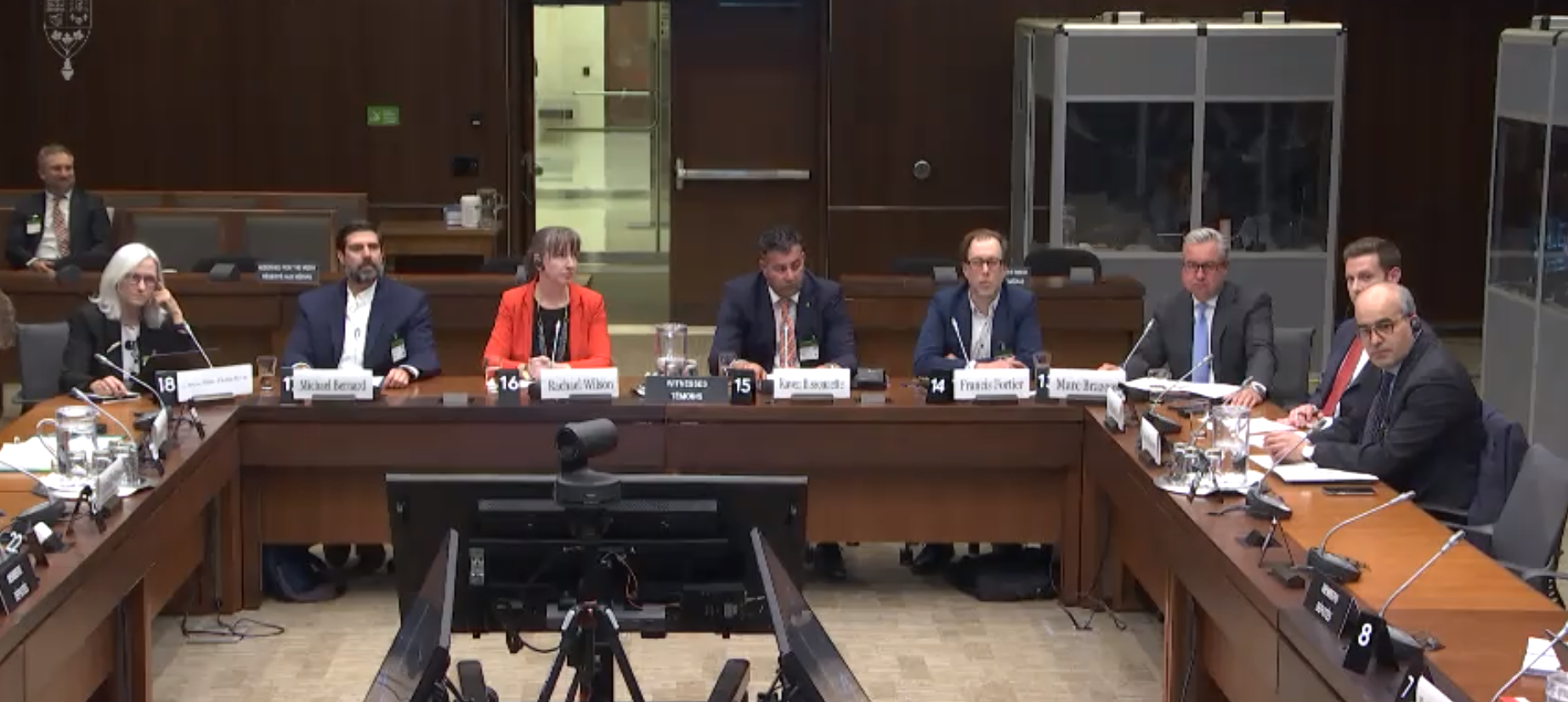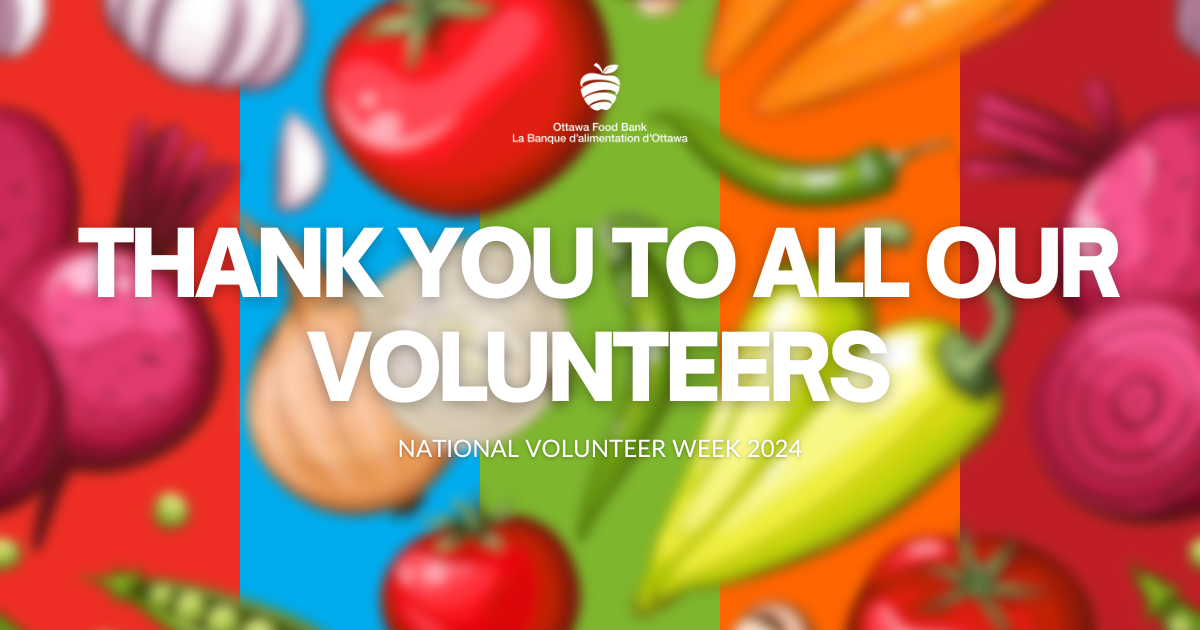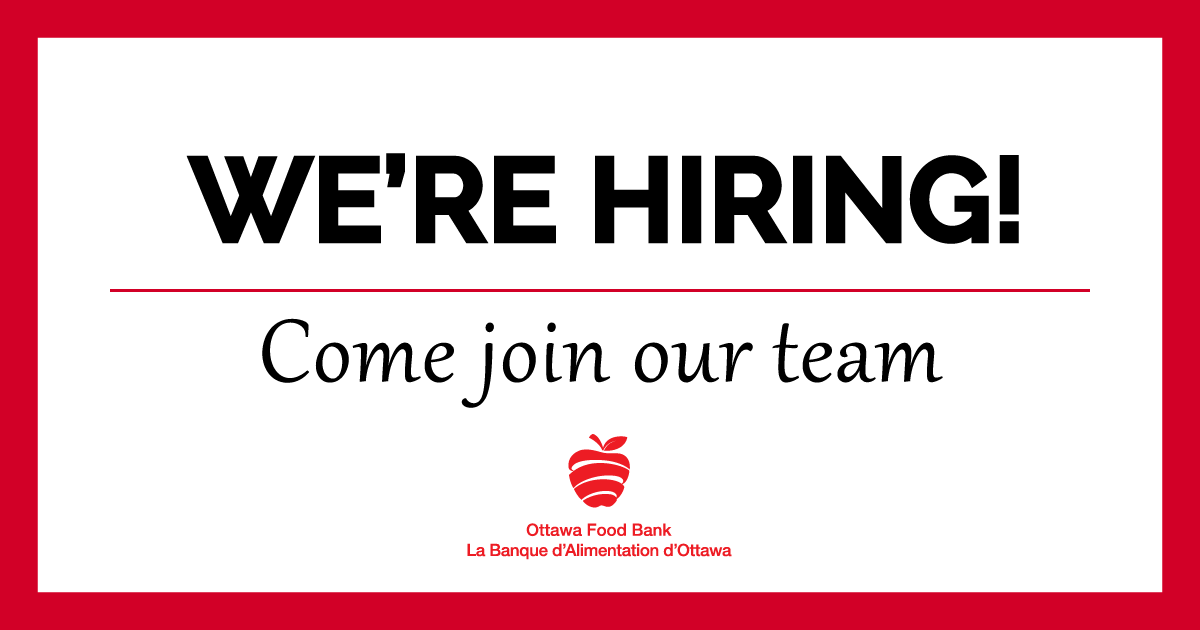In an effort to shed light on the growing issue of food insecurity in the nation’s capital, Rachael Wilson, CEO of the Ottawa Food Bank, delivered a powerful speech on Thursday, May 18, 2023, speaking before the House of Commons Standing Committee on Finance.
Rachael highlighted the urgent need for income-based solutions and emphasized the potential impact of the grocery rebate program. Her remarks resonated with the committee as she shared valuable insights into the challenges faced by individuals and families struggling with food insecurity.
Click here to watch the complete meeting, including the question and answer period.
Explore Rachael’s powerful words and gain a deeper understanding of the crucial discussions surrounding food insecurity and the potential solutions being examined:
“Good evening.
My name is Rachael Wilson, and I have the privilege of serving as the CEO of the Ottawa Food Bank.
At the Ottawa Food Bank, we don’t talk about solving the issue of hunger. Hunger is solved by a meal. Our network of 112 emergency food programs across the city deal with the symptoms of poverty every single day.
It should come as no surprise to anyone that there is a simultaneous health care, affordable housing, and food security crisis. They are deeply linked. That’s why we support comprehensive policies that address the underlying issues of poverty in our country.
Today, I am here to discuss the Grocery Rebate. While any additional money that goes back into the pockets of our clients is crucial, this rebate alone will not bring significant change. The most a family will receive is a maximum of $467. To put things into perspective, in Ottawa, the cost of maintaining a healthy diet, is a staggering $1,088 per month for a family of four, as reported by Ottawa Public Health’s 2022 Nutritious Food Basket.
I listened to my colleagues from the Greater Toronto Area last night share the perspective from their community. This is not just a big city problem. There are food banks in every community, right across this country. Here in Ottawa, the nations capital, we are the fifth largest food bank in the country.
Last year, 1 in 7 households in Ottawa reported experiencing food insecurity, a significant increase from 1 in 15 just five years ago. This year, we saw an 86% increased in client visits compared to March 2019, these are not just numbers on a spreadsheet; they are families, individuals, seniors, and children.
Racheal Wilson, CEO, Ottawa Food Bank Tweet
I share these numbers with you… but I wonder will they make an impact? We saw food bank client numbers rise by 28% in 2008 following the recession and never come back down. The numbers are rising now by 30%.
Is that enough people struggling?
37% of the clients we serve at the Ottawa Food Bank are children. What number of children is too many? Is it 40%? 50%?
Does half our city need to be food insecure before anyone will take meaningful action? What more needs to happen before we decide to take the necessary steps to ensure every Canadian has food on the table and a roof over their head?
I want you to think about the entire province of British Columbia – around 5.4 million people. Imagine the entire province going without food for days. I want you to think about the health impacts that would have. The loss of productivity and the impact on the economy. What that would mean for children and their learning. Because this is what is happening right now in our country.
There are almost 7 million people in Canada who are food insecure. If an entire province was shut down because people were not able to eat, we would declare a crisis immediately and I am confident every effort would be made to support those impacted.
If I sound dramatic or over the top, I assure you I am not. I have worked at the Ottawa Food Bank for seven years and have never had to make the kinds of decisions that we’re making today about who gets food and who goes without.
I urge you to see this as a nonpartisan issue. Food banks in Canada have been around for over 40 years and have seen every type of government come and go. And yet food banks remain and continue to fill the gap left by government policy. What legacy does this government want to leave?
The Ottawa Food Bank is ready to partner with you to eliminate food insecurity in our communities. We support:
- Continued investment in the Canada Child Benefit;
- The expansion of the Canada Workers Benefit;
- A Minimum Income Floor for all Canadians, so that all Canadians can be a part of the economy;
- Policy that encourages the construction of affordable housing.
As you’ve heard from my food banking colleagues across the province, our resounding message is clear: food banks are no longer just a stop-gap solution; we have become a lifeline in the face of a crisis. Our communities look to us for support and hope in their time of need. What they need from you are solutions and policies that help everyone thrive.
I urge each one of you to consider the voices of those who are most affected by poverty and food insecurity. I urge this committee to recognize the pressing need for income-based, systemic solutions to address chronic poverty levels in our communities.
Thank you.”



